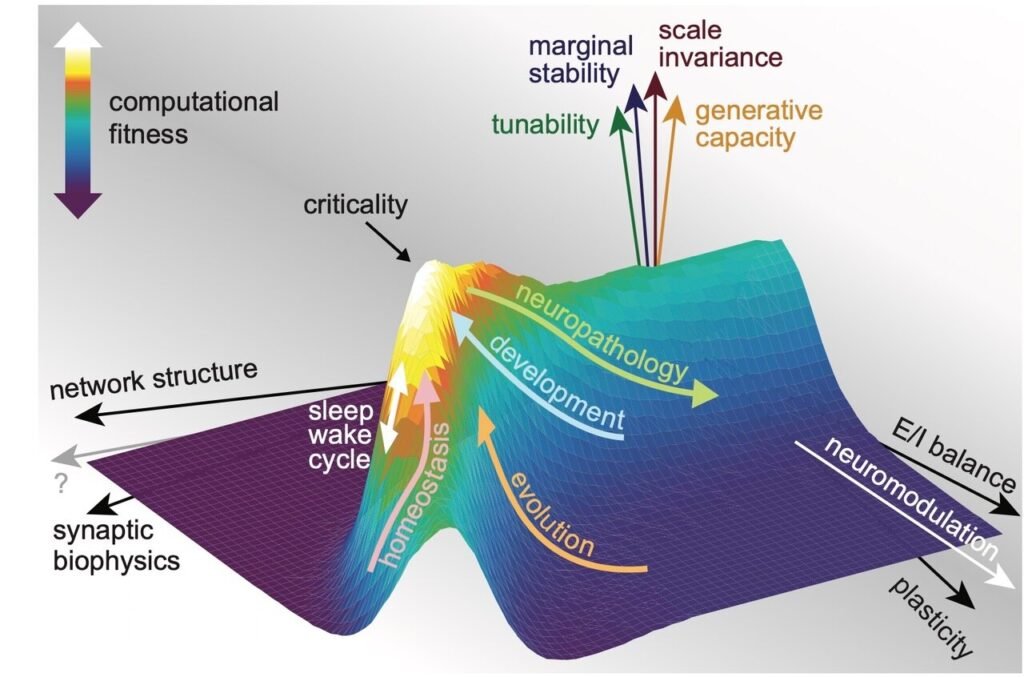A groundbreaking study conducted by Keith Hengen, an associate professor of biology at Washington University in St. Louis, has shed new light on the workings of the human brain and its implications for preventing neurological disorders such as Alzheimer’s disease. Hengen’s research proposes a comprehensive approach to understanding brain function based on the concept of criticality, which he defines as a state that marks the peak of the brain’s computational power.
According to Hengen, the human brain is not hard-wired with preprogrammed circuits but instead is capable of learning and adapting to new information. Criticality, a state borrowed from physics that describes a system on the edge of order and chaos, is essential for the brain to learn, remember, and think effectively. Hengen’s research, published in the journal Neuron, presents criticality as a unifying theory of brain function and disease, with physicist Woodrow Shew as a co-author.
Critical systems, such as the brain, exhibit consistent patterns at any scale, whether measured in neurons or entire brain regions. This constant state of criticality is crucial for the brain’s optimal computational performance. Hengen and Shew have developed a mathematical method to measure the brain’s proximity to criticality using fMRI brain imaging technology, offering a new way to understand how the human brain operates.
The research also highlights the role of criticality in neurological diseases like Alzheimer’s, where the brain’s ability to maintain criticality is gradually eroded, leading to cognitive decline. By disrupting criticality, diseases like Alzheimer’s impair the brain’s computational abilities long before symptoms become apparent. Hengen’s collaboration with neurologist David M. Holtzman has shown that tau protein buildup in Alzheimer’s directly impacts criticality, providing a link between molecular changes and cognitive deterioration.
The concept of criticality also extends to the sleep-mind connection, with Hengen and physicist Ralf Wessel finding that sleep restores the brain to a state of criticality. This insight could pave the way for sleep-based therapies to restore criticality in individuals with neurological disorders, potentially improving learning and memory.
Looking ahead, Hengen aims to explore how criticality influences various aspects of human neurobiology, including creativity and cognitive development. By understanding criticality, researchers may uncover hidden talents and predispositions that could revolutionize our understanding of the human brain.
In conclusion, Hengen’s research offers a new perspective on brain function and disease, emphasizing the importance of criticality as a fundamental aspect of optimal brain performance. By identifying and maintaining criticality, researchers may unlock new avenues for diagnosing and treating neurological disorders, ultimately improving brain health and cognitive function.


